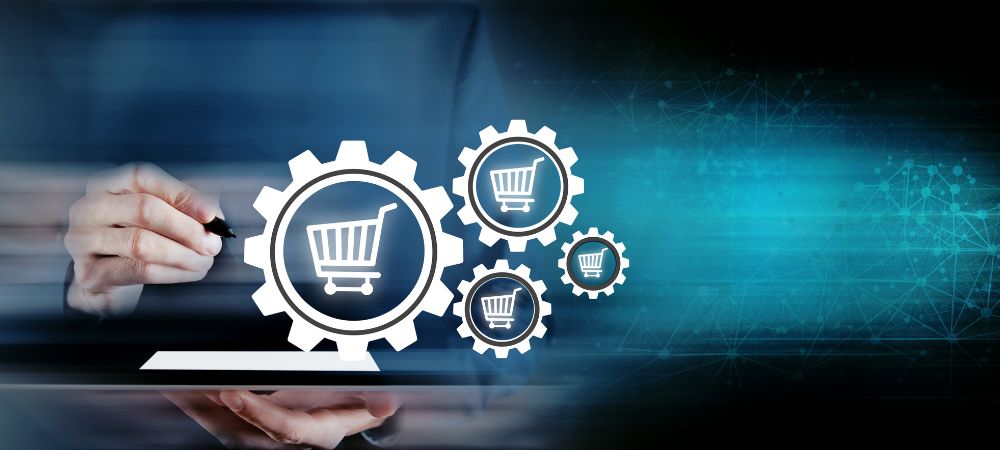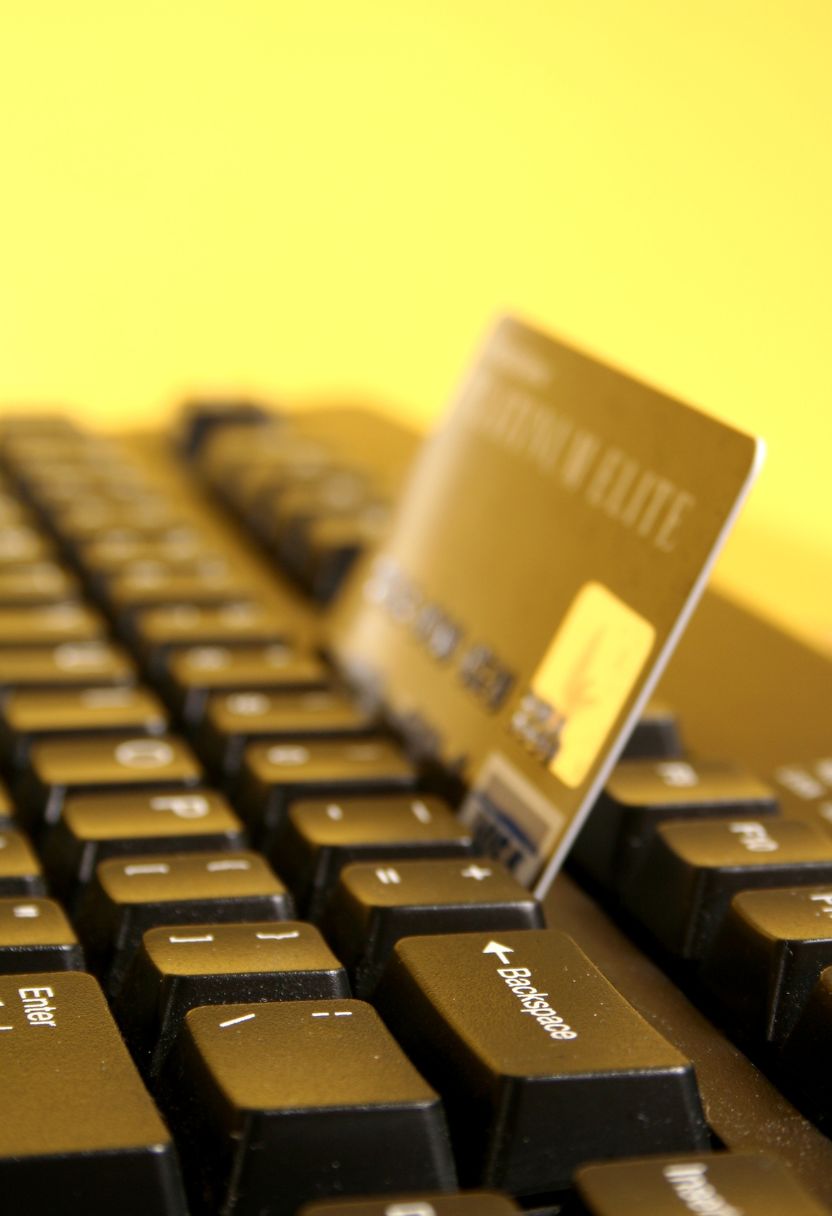

Sure, here's a short essay on the topic.
---
Oh boy, we've all been there. You're scrolling through an online store, you find that perfect pair of shoes or maybe that gadget you've been eyeing for months. You click "buy now," and bam! It's not always smooth sailing from there. Making online purchases can be super convenient, but let's not kid ourselves-it's got its fair share of risks. When it comes to secure checkout processes, there's quite a bit to look out for.
click .
First off, there's the whole issue of phishing scams. For more relevant information click this. You'd think in 2023 we'd be past this, but nope! Scammers are still out there trying to get your personal info by pretending they're legit companies. They might send you an email saying you need to "verify" your purchase or update your account details. Don't fall for it! Legit companies ain't gonna ask for sensitive info over email.
Another biggie is unsecured websites. If you've ever made a purchase without checking if the website's URL starts with "https://", then you're taking a gamble my friend. The 's' at the end? That stands for secure! It means the site has encryption protocols in place to protect your data as it's transferred from your computer to their servers. Without that? Well, anyone could intercept it.
Then there's identity theft-you don't want any part of that mess trust me. If hackers get ahold of your personal info during an insecure transaction, they could open credit lines in your name or worse. And let's face it: dealing with banks and credit agencies afterward is no walk in the park.
And here's something people often overlook: weak passwords and reused credentials make you easy pickings for cybercriminals. Using "password123" ain't gonna cut it these days folks! Hackers use sophisticated software to crack simple passwords in minutes if not seconds.
Oh and don't forget about fake reviews and counterfeit products-they're more prevalent than you'd think! Just because a product has glowing reviews doesn't mean it's legit; those reviews could be bought or fabricated entirely!
Lastly, let's talk about payment frauds like chargebacks and unauthorized transactions which can leave both consumers and merchants in hot water financially speaking.
So what can ya do? Always use strong unique passwords (trust me on this one). Double-check URLs before entering any personal information and never share sensitive details via email or text messages-those are red flags right there!
In conclusion (because we gotta wrap this up sometime), online shopping isn't without its pitfalls but by being cautious and informed, you can minimize those risks significantly while enjoying all the perks that come with digital retail therapy!
---
That should cover most common risks associated with online purchases while keeping things conversational yet informative!
When talking about the key features of a secure checkout system, it's essential to understand that not all systems are created equal. A few critical aspects can make or break the security of your online transactions. First and foremost, good encryption is non-negotiable! If data isn't encrypted properly, it's like leaving your front door wide open for hackers. Secure Sockets Layer (SSL) certificates are crucial since they encrypt information sent between the user's browser and the server.
Another thing you can't overlook is two-factor authentication (2FA). Oh boy, this one's super important! It adds an extra layer of security by requiring users to provide two forms of identification before they can complete their purchase. People might complain it's an inconvenience, but trust me; it's worth it in the long run.
Then there's tokenization-sounds fancy, right? What it does is replace sensitive card details with unique tokens that can't be reused elsewhere. So even if someone gets hold of these tokens, they're pretty much useless without the original data.
Let's not forget about real-time fraud detection mechanisms either. These systems monitor transactions as they happen and flag any suspicious activity immediately. It's like having a guard dog watching over every transaction!
Now, don't you think customer awareness is equally vital? Educated customers are less likely to fall prey to phishing attacks or scams during checkout. Simple things like recognizing a secure URL starting with "https" can go a long way.
Oh, and here's another kicker-regular security audits! You wouldn't want your system gathering dust while cyber threats evolve now, would you? Regular check-ups ensure that any vulnerabilities are patched up promptly.
Some folks might say that all these measures slow down the process and make it cumbersome for users. But hey, I'd rather take a couple more seconds ensuring my payment info isn't floating around for everyone to see!
In conclusion, if you're serious about securing your online checkout process-and who isn't-you need to focus on robust encryption methods like SSL certificates, employ two-factor authentication, implement tokenization techniques, have real-time fraud detection systems in place and yes-I can't stress this enough-educate your customers! Regular security audits also play a pivotal role in keeping everything ship-shape. After all's said and done, you'd rather be safe than sorry when dealing with financial transactions online!
In today’s digital age, shopping online has become the norm for many of us.. It’s convenient, fast, and often cheaper than traditional retail shopping.

Posted by on 2024-07-07
Shopping online has become a common part of our daily lives.. But, with the convenience comes risks too.

Posted by on 2024-07-07
Oh, boy!. The future of the retail industry is undoubtedly a hot topic these days.

Posted by on 2024-07-07
In today's digital age, the role of encryption in protecting customer data during secure checkout processes can't be overstated. It's not just a fancy tech term thrown around by IT folks; it's a crucial shield against cyber threats that lurk around every corner.
First off, let's talk about what encryption actually is. At its core, encryption is like turning your sensitive information into an unreadable mess unless you have the right key to decode it. Think of it like this: you're sending a letter but instead of plain text, you've scrambled the words so only the recipient with the secret code can read it. Pretty neat, huh?
When customers are checking out online, they're often sharing personal details like credit card numbers and addresses – stuff they don't want falling into the wrong hands. Without encryption, this data would be exposed to hackers who could easily intercept and misuse it. Imagine typing your credit card info on a website that's not encrypted – you'd basically be handing over your financial details on a silver platter!
But hey, it's not all doom and gloom. Encryption acts as a strong barrier against these potential breaches. By encrypting customer data during checkout processes, businesses ensure that even if someone manages to get their hands on this information (which isn't impossible), they won't be able to make any sense out of it without the decryption key.
However, nothing's perfect. Encryption isn't foolproof and doesn't mean there's no risk at all – there's always some level of vulnerability. For instance, if a malicious actor gets access to decryption keys or exploits weak encryption methods, then all bets are off.
Moreover, implementing robust encryption practices isn't enough on its own. Businesses also need to stay updated with evolving security standards and regularly audit their systems for vulnerabilities because relying solely on one line of defense could backfire.
And let's face it – nobody wants to shop from websites where they feel their data isn't safe! So providing secure checkout processes through proper encryption doesn't just protect customers; it builds trust too.
It's worth mentioning that while many might think setting up strong encryption sounds complicated (and sometimes costly), investing in good cybersecurity measures pays off in spades compared to dealing with fallout from data breaches.
In conclusion... Yeah sure, there will always be risks involved when sharing personal info online but using advanced encryption techniques significantly reduces those risks during secure checkouts making them safer for everyone involved - both consumers shopping comfortably knowing their private info stays private and businesses maintaining integrity while fostering trust within their customer base.


Implementing secure payment gateways is essential for any business that operates online. It's not just about protecting your financial transactions; it's also about earning the trust of your customers. If they don't feel safe entering their credit card information on your website, they're not gonna complete the purchase. So, let's dive into some best practices for ensuring a secure checkout process.
First and foremost, always use SSL certificates. I can't stress this enough! SSL (Secure Sockets Layer) encrypts the data transmitted between the user's browser and your server, making it much harder for hackers to intercept sensitive information. Without SSL, you're practically inviting trouble. When customers see that little padlock icon in their browser's address bar, they know their connection is secure.
Another crucial step is PCI DSS compliance. The Payment Card Industry Data Security Standard (PCI DSS) sets forth requirements that businesses must follow to protect cardholder data. Not adhering to these guidelines could mean hefty fines or even losing the ability to accept card payments altogether-yikes! It's important to note that being PCI compliant isn't optional; it's mandatory.
You'd think having strong passwords goes without saying, but surprisingly many businesses overlook this simple yet effective measure. Ensure all admin accounts have complex passwords and consider implementing two-factor authentication (2FA). This adds an extra layer of security by requiring a second form of identification beyond just a password.
Don't forget about regular software updates either! Outdated software can be full of vulnerabilities waiting to be exploited. Make it a habit to update everything-from your shopping cart software to plugins-to their latest versions as soon as updates are available.
Tokenization is another fantastic way to enhance security during checkout processes. It replaces sensitive payment information with randomly generated tokens which are useless if intercepted by cybercriminals. Many modern payment gateways offer tokenization features out-of-the-box-so there's really no excuse not to use them!
Moreover, implement fraud detection tools like AVS (Address Verification System) and CVV (Card Verification Value). These tools help verify whether or not the person using the card is indeed its owner by matching billing addresses or requiring additional security codes from cards respectively.
Customer education shouldn't be ignored either! Educate your users on how they can spot phishing attempts or recognize fake websites posing as yours asking for personal info. A well-informed customer base increases overall security significantly because they're less likely fall victim to scams affecting both parties involved negatively.
Lastly-and this might sound obvious-but never store unencrypted credit card details on your servers under any circumstances! You're only creating unnecessary risks by doing so when encrypted storage options exist specifically designed protect such delicate information effectively against breaches/theft incidents alike already mentioned previously above too!.
In conclusion: making sure you've got robust payment gateway implementation isn't rocket science-it's mostly common sense combined with following industry standards/best practices religiously wherever applicable throughout entire lifecycle ecommerce operations conducted consistently across board continuously going forward period!.
Regulatory compliance and standards for online transactions, particularly in the context of secure checkout processes, is a topic that can't be ignored. It's not just about making sure that the users' data is safe but also about staying on the right side of the law. You'd think it's straightforward, but oh boy, it's quite a maze.
First off, let's talk about what regulatory compliance even means. It's basically ensuring that businesses adhere to laws and regulations relevant to their operations. In the realm of online transactions, this often includes things like PCI DSS (Payment Card Industry Data Security Standard) which sets out requirements for securing credit card information during and after a transaction.
Now, you might wonder why all this fuss? Well, if you're running an e-commerce site and you're not compliant with these regulations, you're not just risking your customers' data-you're also risking hefty fines and legal trouble. Not something you'd want hanging over your head!
Secure checkout processes are crucial here. They involve several layers of security measures designed to protect sensitive information as it moves from customer to merchant to bank. This involves encryption technologies like SSL (Secure Socket Layer) certificates which ensure that any data transferred remains confidential.
But wait! That's not all; there are other standards too like GDPR (General Data Protection Regulation) if you're dealing with European customers. These standards require transparent communication about how customer data will be used and stored. And let's face it: nobody likes reading those long privacy policies but they're kinda important.
What happens if you don't follow these rules? Well, apart from losing customer trust-which can be devastating-you could face severe penalties. Imagine having to pay millions in fines simply because you cut corners on security measures or neglected some regulation detail.
It's tempting to think "Oh well I'll deal with it later," but procrastination can cost ya big time in this field! Meeting these standards doesn't have to be overwhelming though; many services offer solutions tailored specifically for small businesses so they don't have to navigate this labyrinth alone.
In conclusion folks-regulatory compliance isn't just bureaucratic red tape; it's essential for safeguarding both businesses and consumers alike in an ever-evolving digital world where threats lurk around every corner. So next time you're setting up an online store or updating your checkout process remember: better safe than sorry!
Consumer Trust and Its Impact on E-commerce Success: Secure Checkout Processes
In today's digital age, e-commerce has revolutionized the way we shop. However, the success of online stores ain't just about having a sleek website or offering the lowest prices. It's also heavily reliant on consumer trust, especially when it comes to secure checkout processes.
Let's face it - nobody wants to input their credit card information into a website that seems sketchy. If consumers don't feel confident that their personal data will be protected, they're not gonna complete that purchase. A secure checkout process is essential for building this trust and ensuring customers feel safe.
But how do you really create a secure checkout process? First off, it's crucial to use trusted payment gateways like PayPal, Stripe, or Square. These companies have invested millions in security infrastructure so that individual e-commerce sites don't have to reinvent the wheel.
Moreover, SSL (Secure Sockets Layer) certificates are another must-have for any online store. An SSL certificate encrypts data transmitted between the user's browser and your server, making it much harder for hackers to intercept sensitive information. If your site doesn't show that little padlock icon in the address bar during checkout, many users won't proceed with their purchase.
Interjection time – Oh! And don't forget about two-factor authentication (2FA). It adds an extra layer of security by requiring not only a password but also another verification method such as a text message code or fingerprint scan. While some might find 2FA slightly inconvenient, it's undeniably effective at preventing unauthorized access.
However, all these technical measures won't mean much if consumers aren't informed about them. Transparency is key here; clearly communicate what steps you've taken to ensure their data is safe. Simple things like displaying security badges can go a long way in boosting consumer confidence.
Yet still there's more - offer multiple payment options! Not everyone likes using credit cards online due to fear of fraud; providing alternatives such as digital wallets or even buy-now-pay-later services can make shoppers feel more comfortable completing their transactions.
But let's not kid ourselves – no system is foolproof. Even with top-notch security measures in place, breaches can happen (lookin' at you Target and Equifax). When they do occur, how quickly and transparently an e-commerce business responds can either mitigate damage or exacerbate distrust among its customer base.
In conclusion folks – fostering consumer trust through secure checkout processes isn't just important; it's absolutely vital for e-commerce success. By investing in robust security features and being transparent with customers about those efforts, businesses can alleviate fears and encourage more people to hit that "Buy Now" button without hesitation.